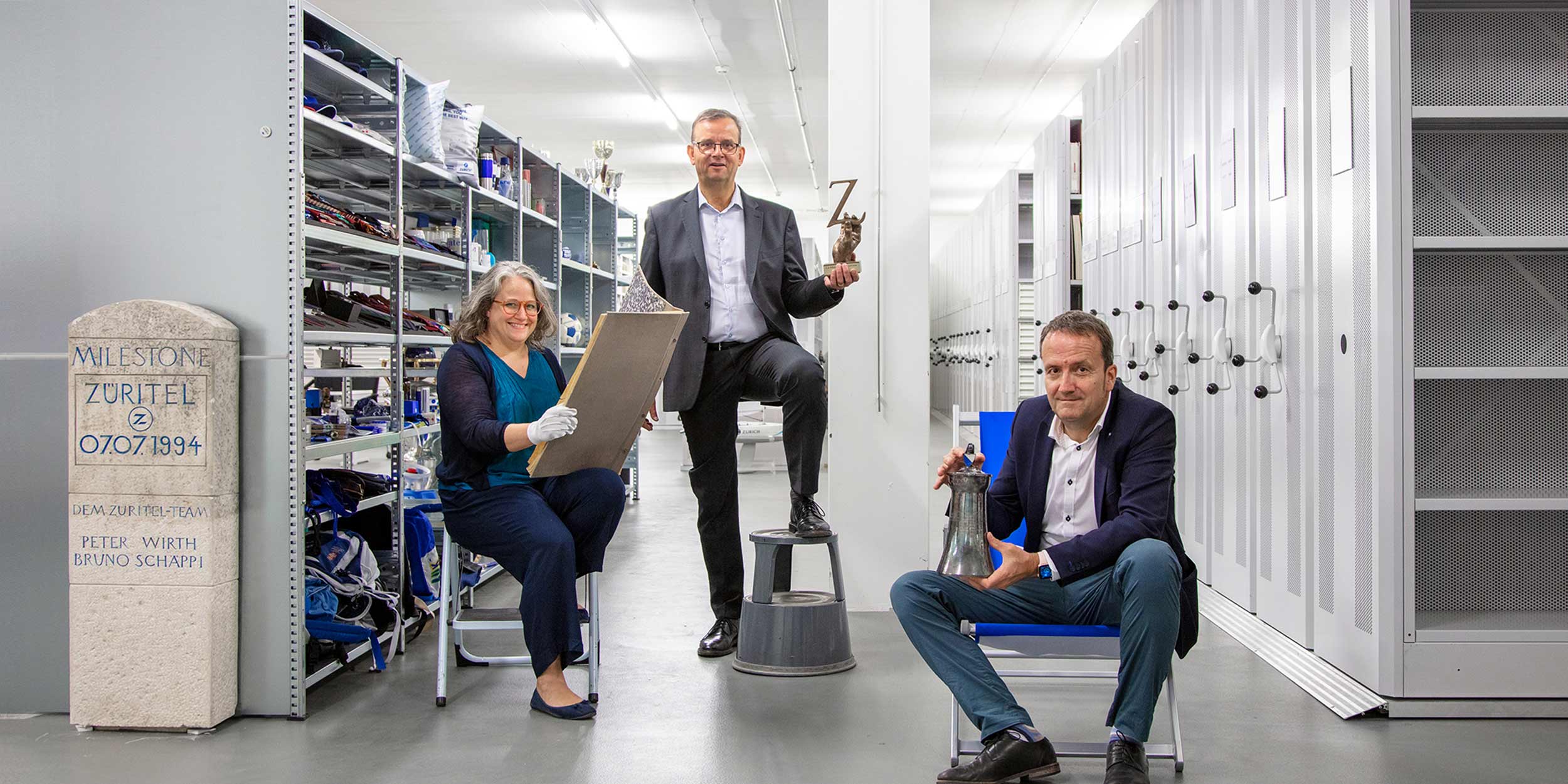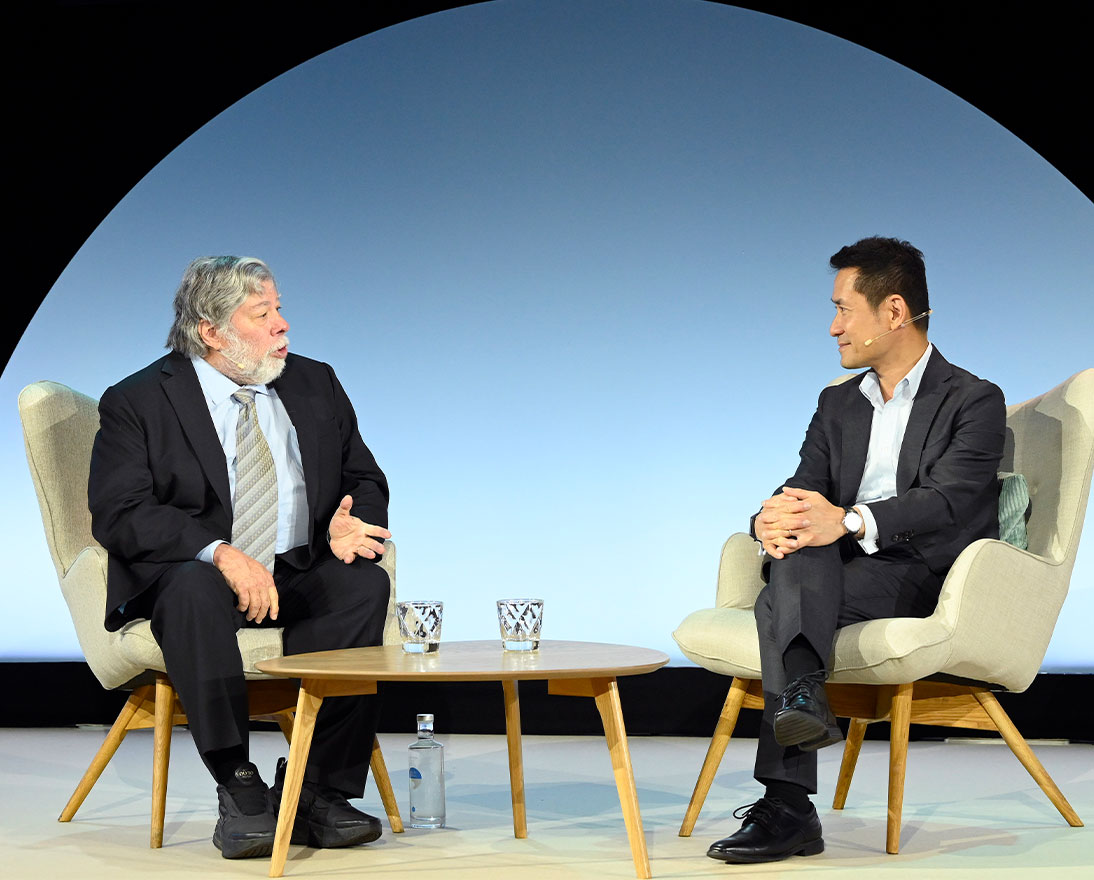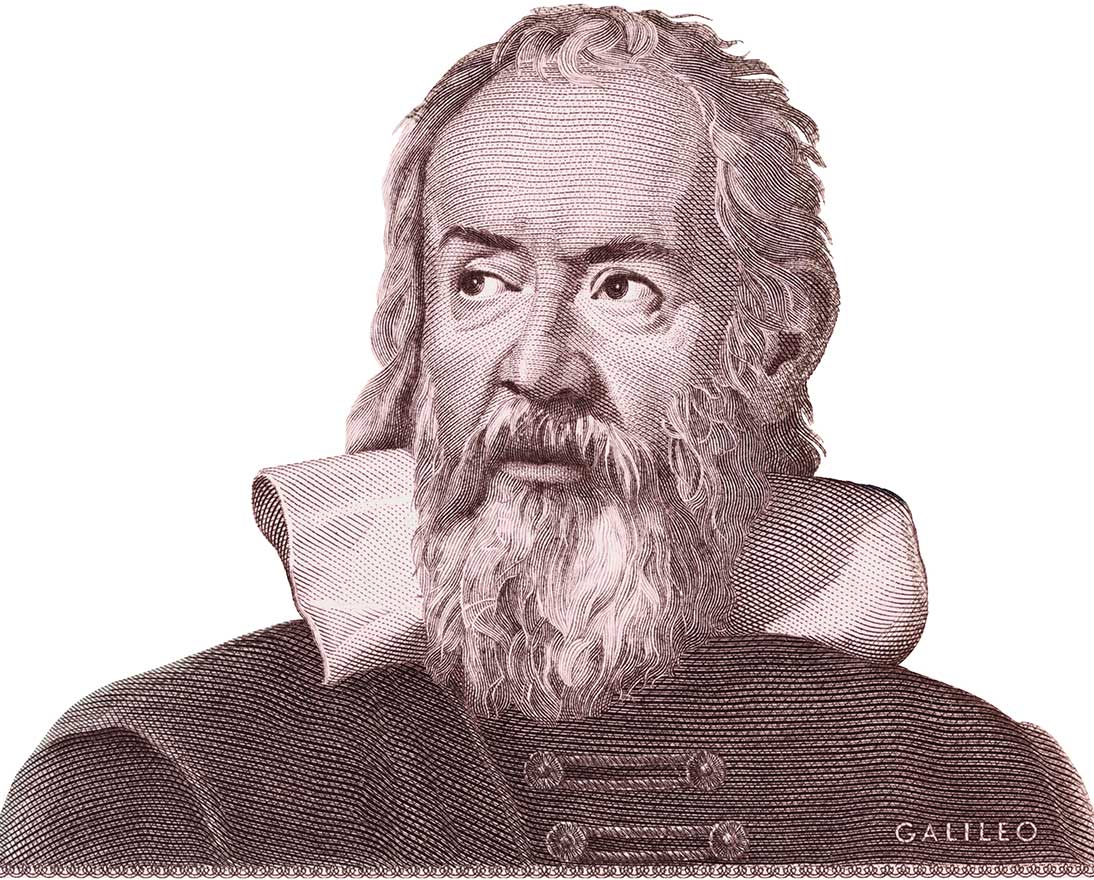The archivists: the smartest people you’ve never heard of
PeopleArticleOctober 24, 2022
Zurich’s archive team are a dedicated and fun crew that has done a lot behind the scenes to bring the 150th anniversary to life. So slip on your white gloves, break out those 19th century ledgers and get ready to belt out ‘I Will Survive’!
Thomas Inglin and Christofer Stadlin are approaching an ultra-modern, nondescript building, about the size of an airport hangar, outside Zurich’s city limits on a recent weekday morning. It’s in the middle of nowhere really, where exactly in the middle of nowhere, I can’t say; I’ve been sworn to secrecy. Direction Ikea, let’s call it.
You can understand why they are overprotective. This high-security fortress – out of a Bond film, and one of the recent Daniel Craig variety – is the new, year-old home for the archives of Zurich Insurance Company Ltd. (Zurich), which marks its 150th anniversary this month.
Considering that Thomas is Head of Corporate Archives and Christofer is the Records Manager, the anniversary is their Super Bowl, their World Cup, their Olympics, all rolled into one. This building, despite its sterility, houses the soul of Zurich – their Wembley – and they can’t stop talking about it.
The facility, they tell me, is one of only three in the world that could withstand a magnitude 10 earthquake, even if there’s never been such a thing. It’s fireproof and, apparently, could withstand a nuclear attack.
“There could be Armageddon and this building will remain,” says Christofer, a native of the nearby town of Zug, though he’s been in the city so long he considers himself a Züricher. “Aliens will come down and only find the Zurich archives.”
Wait, archivists crack jokes? Forget Bond, but aren’t archives dark, dusty, often subterranean places that lure clandestine characters like Benedict Cumberbatch in Tinker Tailor Soldier Spy? Not quite. This group, at least, not only knows their way around a 19th century ledger but are, dare I say, fun, too.
A final steel door slams shut automatically and locks behind us. It’s time for Team Archive to shine.
“The Zurich archive is the memory of the company,” says Thomas, also a Zug native, who started at Zurich in 1995 to help work on the 125th anniversary. “The cultural value of a company is manifested in history. A successful future needs the past.”
Inside, we’re met by Information Specialist Ursula Bühlmann, the third member of the four-person team – Matthias Bünzli, a part-timer, is the other – who greets us in a blue fleece Zurich sweatshirt. It’s chilly in here.
“We have to keep it at a constant 17 degrees Celsius,” says Thomas.
“No, 18 degrees,” Christofer interjects. Archivists are nothing if not exact.
“The climate is important for the documents and also for the photographs,” says Ursula, who hails from the canton of Schwyz and has been with Zurich for nine years. “But now it’s probably too hot since there are four of us in here breathing.”
At first blush, there appears to be plenty of breathing room; the space is roomy, well-lit and tidy, hardly the setting of an espionage thriller. Besides shelf upon shelf of records, many handwritten in sumptuous cursive dating back to the 1800s, there are all sorts of odd and surprising bric-a-brac: neck ties with the Zurich logo; cuff links; key chains; watches; hockey pucks; even baseballs from the days when the American James J. Schiro was CEO in the early 2000s.
 Colorful odds and ends from Zurich’s rich history.
Colorful odds and ends from Zurich’s rich history.
There’s old office equipment that now resemble antiquities: typewriters, calculators, pencil sharpeners, and a massive telex machine. And then, perhaps the most unexpected, is one of the many gifts Zurich has received from delegations around the world: a bronze Chinese earthquake detector – a seismometer that was invented 2,000 years ago during the Han Dynasty. (So if that magnitude 10 earthquake does arrive, the Zurich archive will be the first to know.)
It was Thomas who established the archives as we know it. He could be considered its savior. Before he joined Zurich, he had worked at a small archive company and was the head of a music school in Neuheim, Switzerland. (He still practices his trumpet every day.) On one of his early days back in ’95, he found, to his shock and horror, a logistics team throwing out historical material into a dumpster. “No,” he shouted. “Stop!” A lot was lost, but a lot was saved thanks to him.
 Writing as it used to be in the 1800s.
Writing as it used to be in the 1800s.
At one point, Thomas eases over to one of the massive shelves, dons the white gloves, and gently flips through a ledger from Sion in 1922. He stops on a page that contains the minutes of the board meeting. “We have the ability to look into this international company like no one else,” he says. “And it all comes together in this room.”
Then, with a mischievous smile, he adds, “We have a lot of secrets here, as you can imagine. We can’t tell anyone.”
He does have a sense of humor, and he’s excited to show video clips of his vocal-comedy troupe The Screaming Potatoes, who do ironic, uproarious takes of oldies, including Gloria Gaynor’s disco classic “I Will Survive.”
But both he and Christofer turn serious when it comes to Rolf Hüppi, the CEO from 1991–2002, whom they credit with giving them all the resources they needed to build the archive. In fact, they speak of Herr Hüppi in the same reverent tones soccer fans reserve for Pelé or Maradona.
It was also Thomas who brought the idea of the Heritage Center to current CEO Mario Greco in 2017 – June 20, 2017, to be exact. (Archivists, like we said.) That small museum within Quai Zurich Campus – “the culmination of my career,” according to Thomas – has attracted a lot of attention this year, not only from the staff but also from the general public. “There have been so many requests that we want to continue to promote our heritage center,” says Ursula, who practices the martial art of Krav Maga in her spare time. “It’s been nice to see that so many people are interested in our history this year.”
Ursula and the team are already looking ahead past the anniversary and putting the final touches on an exhibit about the challenges of transformation, which will open next month. “Let’s just say we’re quite an exotic department,” Thomas says.
The Heritage Center tours have been led regularly by Christofer, who, besuited and rattling the most obscure facts easily off the top of his head with his hands in his pockets, could be mistaken for a TED Talker.
And Christofer does like to talk. He joined Zurich 25 years ago with a background in medieval history and philosophy. “I had no idea about insurance,” he says, “so to work for a multinational corporation, I said to my friends, ‘I’m working for the enemy.’”
His perspective changed soon after. “I became absolutely passionate about business history and the history of insurance. I realized that it was, and still is, an under-researched field, especially in relation to the importance that insurance had for the development of capitalistic economies.”
He loves books, and the light reading currently on his night table includes Timothy Snyder’s The Road to Unfreedom: Russia, Europe, America; Marc Flandreau’s Anthropologists in the Stock Exchange: A Financial History of Victorian Science; and The Dawn of Everything: A New History of Humanity by David Wengrow and the influential anthropologist David Graeber.
It was Graeber remember who authored the 2018 tome Bulls**t Jobs: A Theory. If one thing is clear after spending a morning with this team, it’s that these are most certainly not bulls**t jobs. On the contrary. It’s deadly serious, despite the occasional jesting.
“The misunderstanding about the job that I don’t like is when people say, ‘history is primarily about the past.’ No, for me it’s actually a tool to think about the future in a structured way. History can be used to break the obviousness of the established order. That’s actually the function of history, and this is something that could be better understood. That’s my motivation. So do I love my job? Completely. It’s a great job, actually.”



